You’ve probably heard the saying, “trust your gut.” But did you know your gut is actually talking to your brain 24/7? Scientists call it the gut-brain connection, and it’s one of the hottest topics in wellness right now. More than just a buzzword, this link explains why what you eat doesn’t just fuel your body—it can transform your mind, impacting everything from focus and memory to mood and mental clarity.
Why Gut Health Matters for Mental Performance
It’s wild but true: your gut isn’t just for digesting food. It houses billions of bacteria (the gut microbiome) that send signals directly to your brain. When your gut is healthy and balanced, your brain works better. But if your gut is out of whack? Brain fog, memory slips, mood swings, and trouble concentrating often follow.
The Rise of Research on the Gut-Brain Axis
For decades, scientists thought the brain ran the show. Now, research is proving that the gut has a say in everything from motivation to stress resilience. This back-and-forth highway is called the gut-brain axis—and your daily food choices can either strengthen or sabotage that connection.

How the Gut and Brain Communicate
This isn’t woo-woo. The gut and brain have real, physical connections that impact your mental game every day.
The Vagus Nerve and Chemical Messengers
The vagus nerve is the body’s information superhighway, connecting your gut to your brain. It constantly sends signals about hunger, stress, and well-being. On top of that, your gut makes and responds to neurotransmitters (chemical messengers) like serotonin, dopamine, and GABA—crucial for mood and mental clarity.
Get this: around 90% of your serotonin (the “feel good” chemical) is produced in your gut, not your brain!
The Role of Gut Microbiome in Brain Function
The microbiome is like a bustling city of bacteria, yeast, and other microbes living in your digestive tract. When your microbiome is balanced and diverse, it produces brain-friendly compounds that sharpen memory, boost focus, and help you stay resilient under stress. But an unbalanced gut (from poor diet, stress, or antibiotics) can trigger inflammation, slow down your thinking, and even raise your risk for depression and anxiety.
Signs Your Gut Health May Be Affecting Your Focus and Memory
So, how do you know if your gut might be messing with your brain power? Here are some common clues.
Brain Fog, Mood Swings, and Mental Fatigue
If you’re:
-
Struggling to concentrate or remember things
-
Feeling foggy-headed or tired even after sleep
-
Experiencing mood swings, irritability, or “off” days without reason
…it could be your gut. Researchers now connect these symptoms with an imbalanced microbiome or chronic gut inflammation.
Digestive Symptoms Linked to Cognitive Issues
Pay attention to your body’s signals:
-
Frequent bloating, gas, or stomach pain
-
Irregular bowel movements (constipation or diarrhea)
-
Food sensitivities or discomfort after meals
Digestive distress often goes hand-in-hand with dips in focus, motivation, and memory.
Nutrition Essentials for a Healthy Gut-Brain Connection
So what should you eat for a sharper mind? It starts in your gut.
Prebiotics, Probiotics, and the Microbiome
-
Prebiotics are special fibers that “feed” the good bacteria in your gut. You’ll find them in foods like garlic, onions, leeks, asparagus, bananas, and oats.
-
Probiotics are live bacteria that directly boost your microbiome. Think fermented foods—yogurt, kefir, sauerkraut, kimchi, and kombucha.
-
Polyphenols (plant antioxidants) found in berries, cocoa, green tea, and colorful veggies feed your microbiome and lower gut inflammation.
Key Nutrients for Focus and Memory
-
Omega-3 fatty acids: Found in fatty fish, walnuts, and chia seeds. They’re building blocks for brain cells and help reduce inflammation.
-
B vitamins: Vital for neurotransmitter production and energy (whole grains, eggs, leafy greens).
-
Magnesium: Calms your nervous system and supports clear thinking (nuts, seeds, dark chocolate).
-
Choline: Supports memory and focus (eggs, soybeans, lean meats).
A nutrient-dense diet is the best way to nourish both your gut and your brain.
Best Foods to Boost Gut Health and Cognitive Performance
It’s not just what you eat—it’s what your gut loves.
Fermented Foods for a Happy Brain
-
Yogurt and kefir: Packed with probiotics and protein for a strong gut lining.
-
Sauerkraut and kimchi: Loaded with live cultures and fiber to keep your microbiome balanced.
-
Kombucha: A fizzy, probiotic-rich tea that supports digestion and energy.
-
Miso and tempeh: Fermented soy foods high in protein, probiotics, and minerals.
Eating fermented foods regularly helps your brain by making your gut a powerhouse of healthy bacteria.
Omega-3s, Antioxidants, and Fiber-Rich Choices
-
Salmon, sardines, and trout: Rich in omega-3s for memory and focus.
-
Berries, spinach, and broccoli: Packed with antioxidants and fiber to reduce inflammation.
-
Beans, lentils, and whole grains: Feed your microbiome and provide steady, long-lasting brain energy.
A balanced plate means a happier gut—and a sharper mind.
Foods and Habits That Sabotage Gut-Brain Harmony
Just like the right foods can supercharge your gut-brain axis, the wrong choices can sabotage it. If you want better focus and memory, it’s time to rethink your pantry (and maybe a few daily habits).
Sugar, Processed Foods, and Artificial Additives
Let’s get real:
-
Added sugars and highly processed foods feed the “bad” bacteria in your gut, crowding out the good guys and triggering inflammation.
-
Artificial sweeteners (like aspartame or sucralose) can disrupt your microbiome balance, leading to mood swings or brain fog.
-
Preservatives and artificial dyes found in packaged snacks and drinks can worsen gut issues for some people, especially if you’re sensitive.
The result? Increased inflammation, more digestive problems, and less mental clarity. Swap sugary snacks for whole foods and limit ultra-processed meals whenever possible.
Stress, Sleep, and Lifestyle Factors
Gut health isn’t just about what you eat—it’s also about how you live.
-
Chronic stress: Raises cortisol, which can damage the gut lining and weaken your microbiome. Mindfulness, deep breathing, or simple walks can help.
-
Lack of sleep: Your gut bacteria have their own circadian rhythm! Pulling all-nighters or sleeping poorly throws off their balance, impacting your mood and cognitive performance.
-
Sedentary lifestyle: Regular movement boosts healthy gut bacteria and supports brain health. Even 20-30 minutes a day makes a difference.

The Role of Supplements in Gut-Brain Support
Supplements can be a great addition, but they’re not a magic fix. Let’s talk about when and how to use them wisely.
When to Consider Probiotics or Nootropic Nutrition
-
Probiotic supplements: Helpful after antibiotics, or if you have chronic digestive or mood issues. Look for multi-strain products with at least 10 billion CFU.
-
Prebiotic fiber supplements: Good if your diet is low in fiber or you struggle with constipation.
-
Omega-3 supplements: For anyone who doesn’t eat much fish, these are a proven brain booster.
-
Nootropic blends: Some combine gut-supporting ingredients (like lion’s mane or bacopa) with probiotics for a two-in-one effect.
Common Pitfalls with Gut and Brain Supplements
-
Not all supplements are equal: Poor-quality or single-strain probiotics might not make a difference. Research brands and look for third-party testing.
-
Too much, too fast: Adding lots of fiber or new probiotics can cause gas, bloating, or cramps. Start low and build up slowly.
-
Ignoring the basics: No supplement replaces a balanced diet, stress management, and regular movement.
Simple Daily Habits for a Stronger Gut-Brain Axis
Want to feel sharper, happier, and more focused? It’s about daily habits, not just quick fixes.
Mindful Eating, Movement, and Stress Management
-
Eat slowly: Give your body time to digest and your gut time to send “I’m full” signals to your brain.
-
Prioritize plants: Aim for a rainbow of fruits, veggies, whole grains, and legumes for maximum fiber and diversity.
-
Move every day: Even a brisk walk helps your gut and your mind.
-
Practice mindfulness: Deep breathing, yoga, or journaling can lower stress and support a healthier microbiome.
-
Get quality sleep: Your gut and brain repair themselves at night—aim for 7-9 hours.
A few simple changes can transform your gut-brain connection and unlock better cognitive performance for the long haul.
Conclusion: Harnessing Nutrition for a Sharper Mind
The gut-brain connection isn’t just science—it’s your secret weapon for better focus, memory, and mood. By eating for a healthy microbiome, ditching the foods that sabotage your gut, and building habits that support your whole body, you can level up your mental performance without reaching for another energy drink or quick-fix supplement.
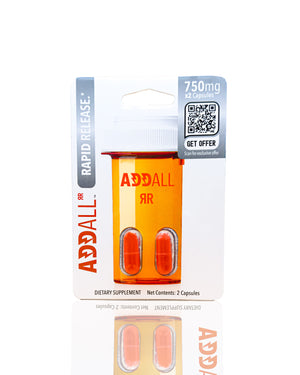
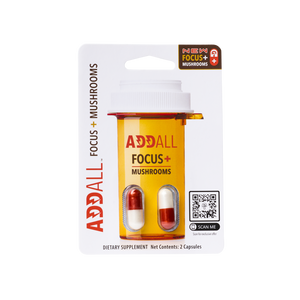

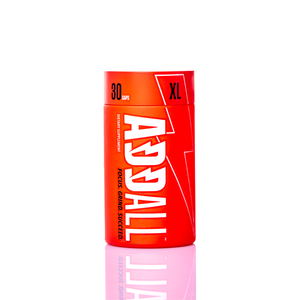
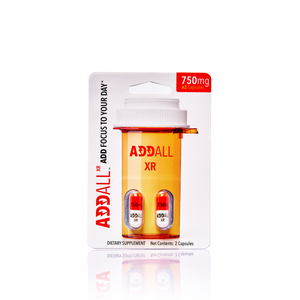
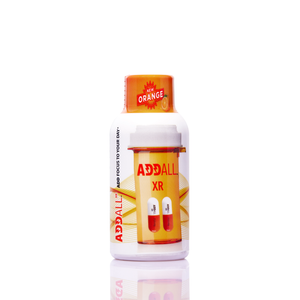

 Addall XR
Addall XR
 Addall XL
Addall XL
 Addall
Addall Addall
Addall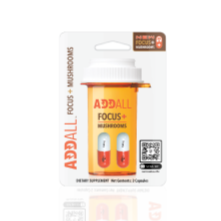 Addall
Addall Addall
Addall
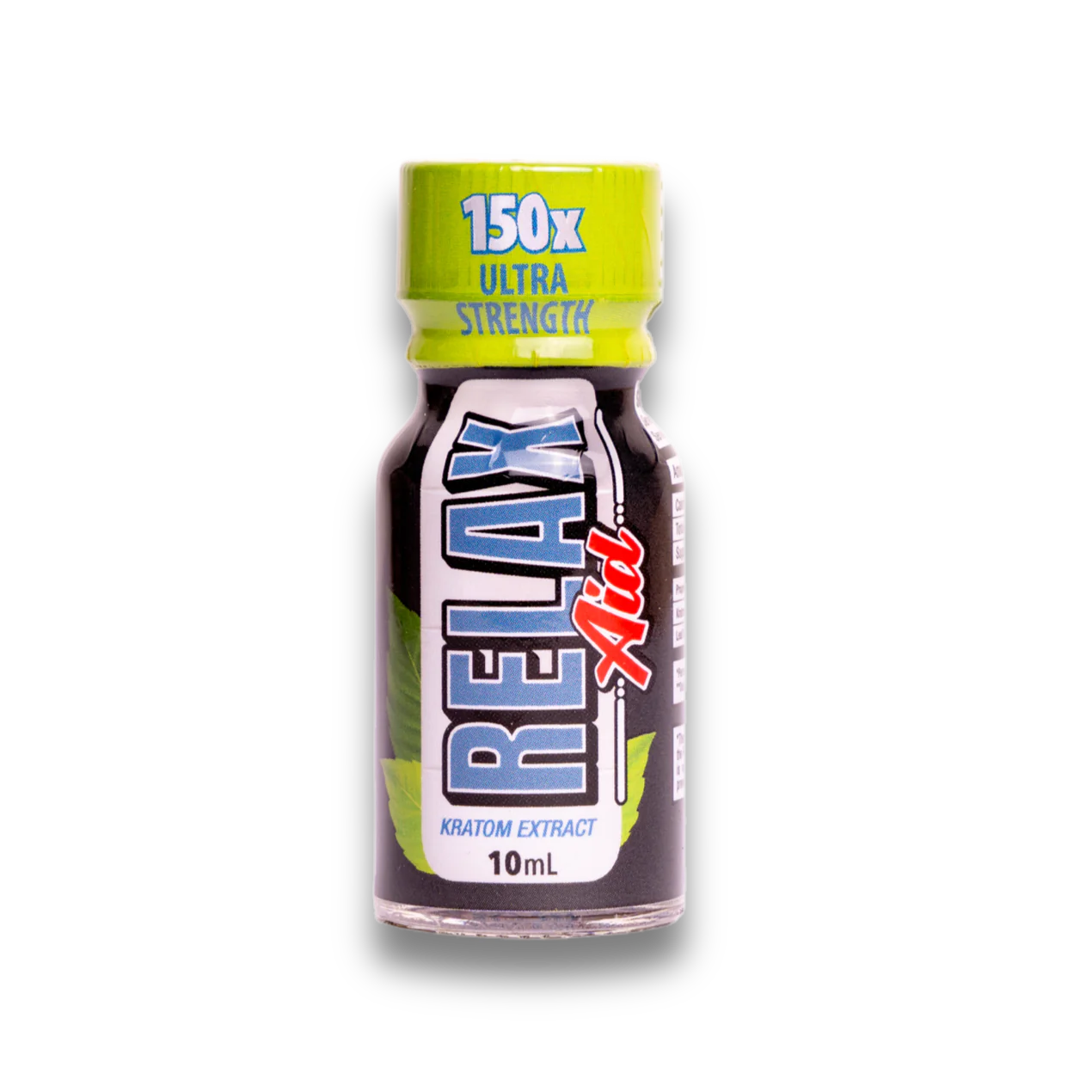 RelaxAid
RelaxAid
 Compare
Compare



















































